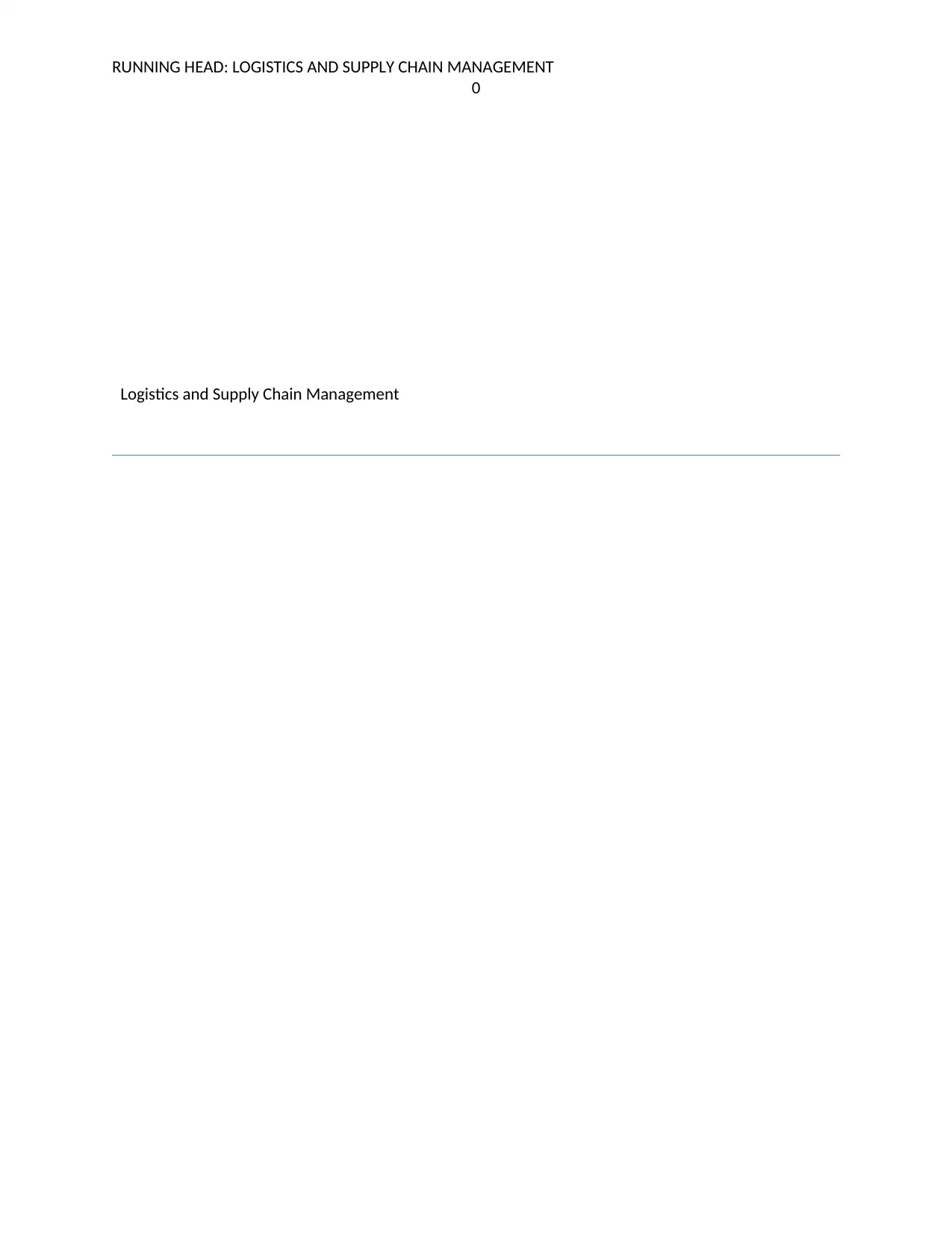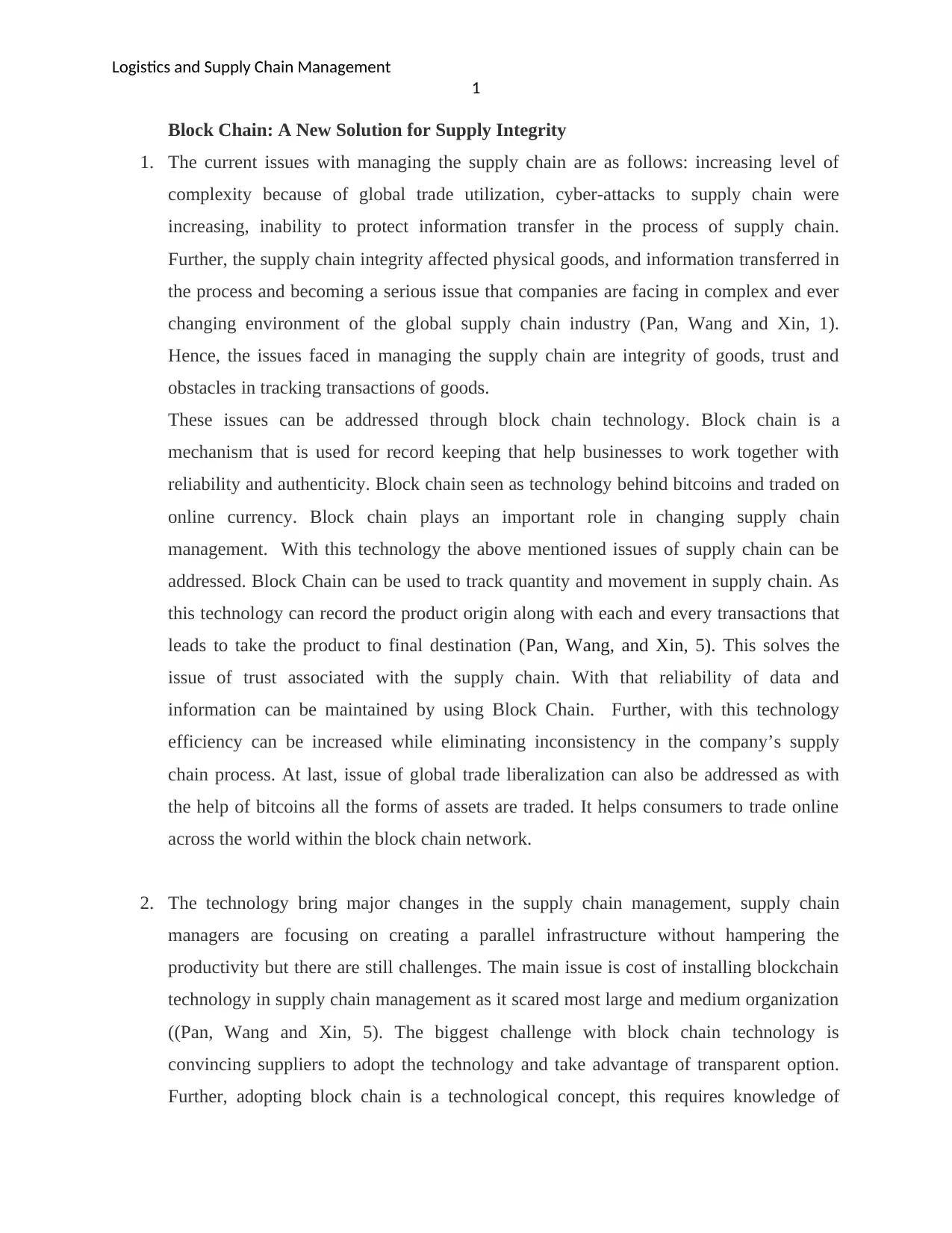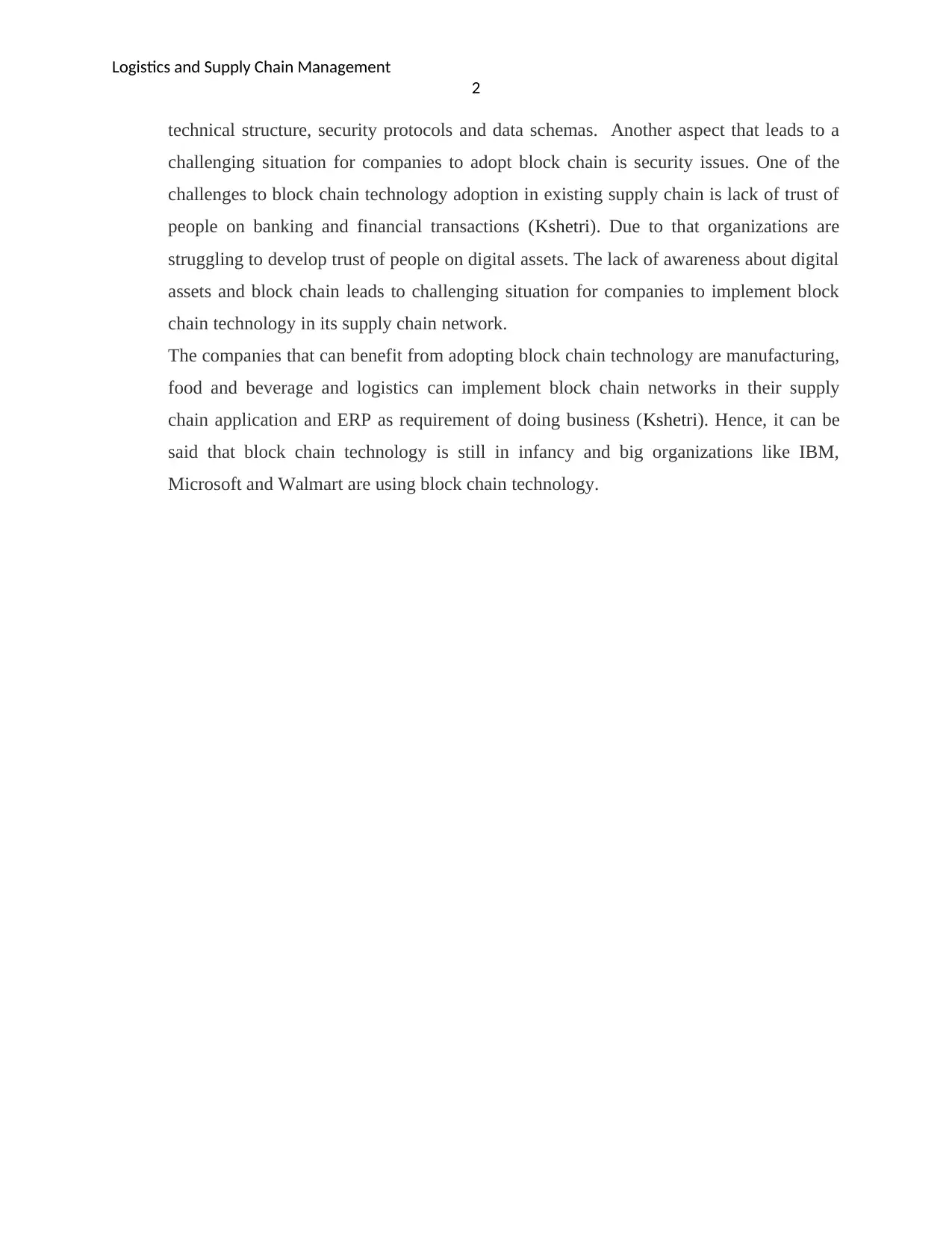Case Study: Blockchain's Role in Supply Chain Integrity and Efficiency
VerifiedAdded on 2022/09/18
|4
|670
|26
Case Study
AI Summary
This case study explores the implementation of blockchain technology in supply chain management to address issues such as complexity, cyber-attacks, and information transfer security. The study highlights blockchain's potential to enhance supply chain integrity, improve tracking of goods, build trust, and streamline transactions. It discusses how blockchain can improve efficiency and facilitate global trade. The case also identifies challenges like the cost of implementation, the need for supplier adoption, technical knowledge requirements, and security concerns. It concludes by mentioning companies like IBM, Microsoft, and Walmart that are already using blockchain, emphasizing its nascent stage but promising future in transforming the supply chain landscape. The case study references works by Kshetri and Pan, Wang, and Xin.
1 out of 4










![[object Object]](/_next/static/media/star-bottom.7253800d.svg)